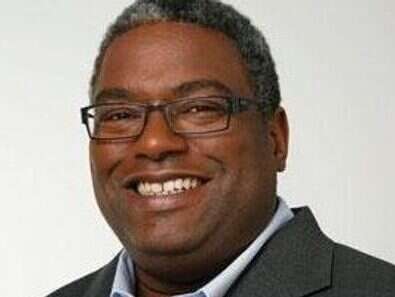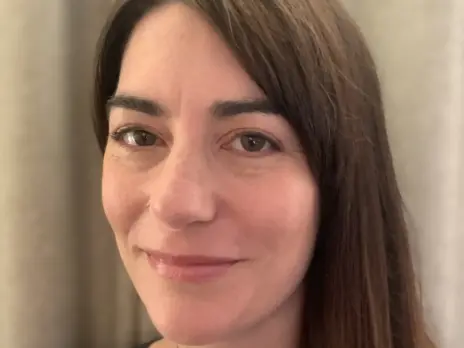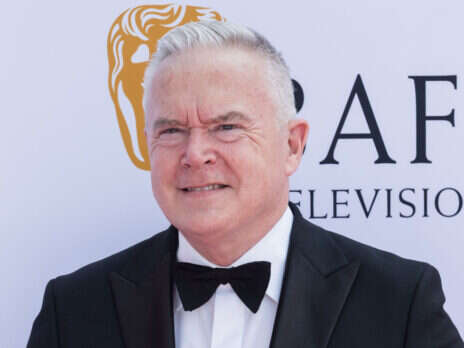
Broadcasters should not ban the use of the N-word but the way in which it was used in a recent BBC Television report into a racist attack was indefensible, former BBC creative director Pat Younge has said.
Speaking at an event organised by the Ethical Journalism Network, titled: “Words Hurt: Ethical Reporting on Race, Younge said: “My fundamental position is that words should not be banned, not even the N-word.”
However, Younge (pictured) said that in reporting a violent attack on a young black man, the word did not need to be used, especially as the audience could see the wounds of the victim.
“They didn’t need that word to bring across the ferocity of the attack,” he said.
The BBC has defended the use of the word, saying it was editorially justified.
But Younge said the N-word was justified in a history programme presented by Lucy Worsley which quoted its use by the man who assassinated President Lincoln. “One was not defensible, one was,” he said.
Younge blamed the lack of black people in the BBC’s editorial policy department for errors made.
Daniel James Henry, who reported the recent BBC Three documentary Fighting the Power: Britain After George Floyd, said: “Words hurt. People need to recognise that’s true,” and added there were people who would think differently of the BBC for years to come because of this report.
TV reporter and panel chair Keme Nzerem said: “It’s impossible to overstate the importance of some words.”
Black Lives Matter
Younge and other television journalists speaking on the panel at the Ethical Journalism Network event also said that TV reporters should not declare their support for the organisation Black Lives Matter, while they should be allowed to support the principle that black lives matter.
Younge said he understood the reluctance of broadcasters to allow journalists to profess support for BLM. “If you are a journalist it’s hard to support any organisation you report [on]. There is a difference between believing black lives matter and supporting Black Lives Matter.”
Nzerem agreed the organisation and the principles had become conflated, while Channel 4 News reporter Aysha Tull said: “There’s no way I can cover Black Lives Matter and be openly supportive of the organisation and report on it. As a black woman, of course I believe black lives matter.”
Tull said that reporting on the protests that resulted from the George Floyd killing had been very difficult personally. “I couldn’t bring myself to watch the video and when I did, I cried for hours. It’s so personal and it hurts so bad.”
She said a close family member trained Metropolitan Police officers in London and described herself as coming from a “police family”, but that the distress she felt meant she was even more determined to report events properly.
“I do feel things differently, but it doesn’t mean I can’t report in a fair and accurate way,” she said. “I want to make sure this is done right.”
Racism reporting ‘puts people on trial’
Henry said that being black could be an advantage when he was reporting his film, which he worked on with a black producer and director.
“Everyone we approached, when they saw the make-up of our team, knew there were things they could tell us and we would understand.”
He said reporting on mental health issues has improved massively and journalists now accept the experiences of people with mental health problems as valid – yet they often acted very differently when reporting black people’s experiences of racism.
“It’s always putting the person’s experience on trial,” he said. “The audience comes away unsure if racism exists.”
Henry added that reporting on race should be seen as a specialism as valid as other accepted specialisms.
Panellists said a much greater ethnic diversity in UK newsrooms was needed. Freelance journalist Hannah Azieb Poole said: “We are still getting a very monocultural version of what is life. White is the baseline and everyone else is ‘other’.”
She said the media, art and culture needed to reflect Britain more accurately if they wanted to remain relevant and retain readers and audiences, while white journalists should read more about the history, lives and experiences of black people.
Agreeing, Younge said: “As black people we have grown up in a white world. We understand white Britain.”
Tull called for a greater range of black people to be interviewed in the news, such as gynaecologists and epidemiologists, adding: “I’m tired of seeing black people as victims.”
She blamed the problem on the lack of black people in leadership positions, a point echoed by Poole: “Stop offering black people mentorships and start promoting us.”
In the US, a black news channel was set up earlier this year but the panellists did not see this as the right way forward. Younge said: “It would be a step backwards.”
Tull agreed: “You are letting public service broadcasters off the hook. You need to reflect everyone.”
Picture: BBC
Email pged@pressgazette.co.uk to point out mistakes, provide story tips or send in a letter for publication on our "Letters Page" blog






